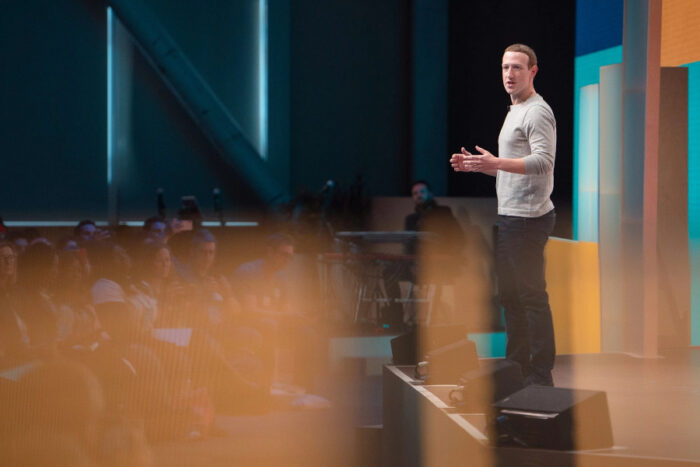The New York Times มีบทความเจาะลึกบทบาทของ Mark Zuckerberg ในช่วง 2-3 ปีให้หลัง ที่ Facebook โดนถล่มจากรอบทิศทาง ทำให้ Mark ที่ก่อนหน้านี้มีแนวทางบริหาร “ทำเฉพาะเรื่องที่ชอบ” เช่น เทคโนโลยี หรือ การพัฒนาผลิตภัณฑ์ แล้วยกงานที่น่าเบื่อพวกสายธุรกิจ รัฐบาล นโยบาย ให้กับ Sheryl Sandberg ทำแทน ต้องเปลี่ยนแนวทางการทำงานของตัวเอง
ในบทความระบุว่า การที่ Mark เข้ามาลุยงานด้านนโยบายอย่างจริงจัง (เพื่อรับมือ Trump และการเลือกตั้งปี 2020) ทำให้เขาสามารถรับมือกับวิกฤตที่แทรกเข้ามาอย่าง COVID-19 ได้ค่อนข้างดีอีกด้วย
ประเด็นที่น่าสนใจคือ NYT ได้ข้อมูลจากการประชุมภายในของ Facebook ในปี 2018 อ้างคำพูดของ Mark เองที่บอกว่า เขากำลังเปลี่ยนตัวเองมาเป็น wartime leader ผู้นำยามมีศึกสงคราม
Not long after, in July 2018, Mr. Zuckerberg called a meeting with his top lieutenants. In the past, he had used the group’s semiannual gatherings to chart new courses for Facebook products, or discuss new technology he was interested in capitalizing on. This time, he told his executives that his focus was on himself. With Facebook constantly under attack from outsiders, Mr. Zuckerberg said, he needed to reinvent himself for “wartime.”
“Up until now, I’ve been a peacetime leader,” Mr. Zuckerberg said, according to three people who were present but not authorized to discuss the meeting publicly. “That’s going to change.” Mr. Zuckerberg said he would be making more decisions on his own, based on his instincts and vision for the company. Wartime leaders were quicker and more decisive, he said, and they didn’t let fear of angering others paralyze them.
เมื่อพูดถึงผู้นำโลกในยามศึกสงคราม (wartime leader) คนอาจนึกถึง Winston Churchill ที่มีบทบาทเรื่องนี้อย่างโดดเด่นตอนสงครามโลกครั้งที่สอง (เคยเขียนถึงเรื่องนี้ไว้ตอน Darkest Hour) แต่พอถึงช่วงปลายสงคราม ฮีโร่อย่างเขากลับ “แพ้เลือกตั้ง” เพราะคนอังกฤษมองว่าประเทศต้องการผู้นำยามสันติ (peacetime leader) มากกว่า (แต่ Churchill ก็ได้กลับมาเป็นนายกอีกรอบหลังจากนั้น)
ในแง่การบริหารสมัยใหม่ ก็น่าตั้งคำถามว่าผู้นำองค์กรธุรกิจสามารถเป็นทั้ง wartime/peacetime leader ได้ในคนเดียวกันหรือไม่ (และต่อให้ในทางทฤษฎีไม่ได้ วิกฤตขนาดใหญ่อย่าง COVID-19 ก็น่าจะบีบให้ผู้นำองค์กรทุกคนต้องเป็น wartime leader อยู่ดี)

